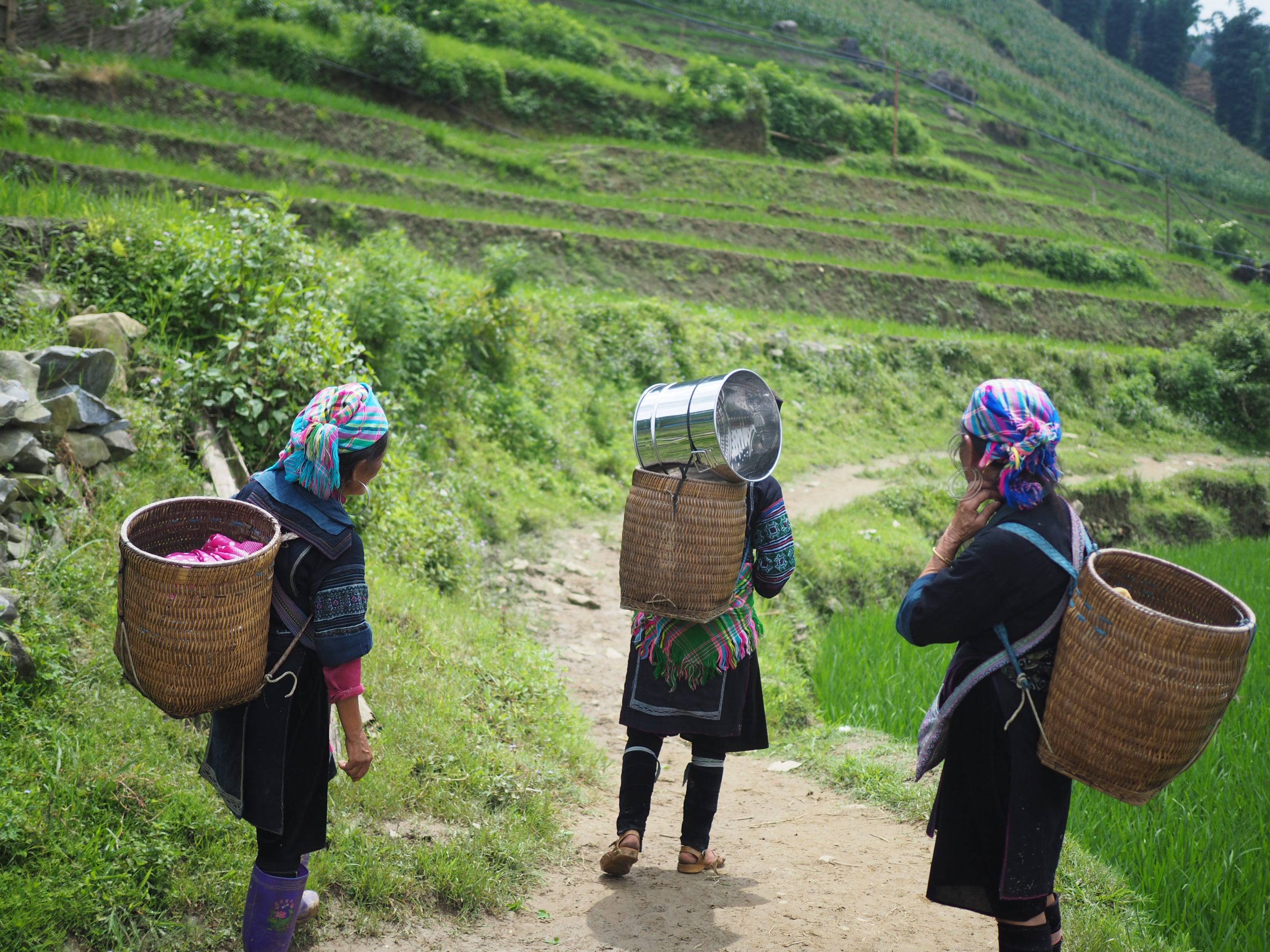November 25 marked the International Day for the Elimination of Violence against Women, encouraging us to reflect on Gender Responsive Governance and its potential to promote peace and sustainable development. This yearly occasion serves as a reminder that the persistent struggle for gender equality faces additional challenges in conflict-ridden scenarios, where crises can intensify existing gender disparities. In settings where women already have limited protection, rights, and access to economic opportunities, fragile environments breed more hostility and violence. Thus, the need for (local) governments to adopt a gender-responsive lens becomes increasingly evident in the face of instability.

Women in North Vietnam. Photo by Ives Ives
Gendered Realities in Conflict: Challenges and Opportunities for Change
In conflict-affected environments, differences in access to employment, education, and income sources become critical factors intensifying gender inequalities. Liuibov Maksymovych, a dedicated participant in the Gender Responsive Governance training and the director of the NGO Women’s Perspective supporting women in Ukraine, sheds light on the stark realities women face during wartime. Liuibov explains how the unfolding of the conflict left many women with no livelihood as their partners went to the frontline. This new reality turned women into both caretakers and breadwinners, significantly heightening their responsibilities and workloads.
Similarly, stressing the often unseen gendered reality conflicts bring, a Palestinian participant in the Gender Responsive Governance training underscores how the war in Gaza has made access to birth and childcare impossible for women, forcing them to give birth with no medical access or supervision.
At the same time, the participant also showcases how conflicts can serve as potent moments for transforming gender equality: gender-related challenges exacerbate the hardships for women in conflict-affected settings, but these moments of crises can sometimes emerge as agents of change. As she elaborates, more Palestinian women have stepped into the traditionally male-dominated realm of journalism to report the war in Gaza. In Ukraine as well, as recounted by Liuibov, a notable paradigm shift is observed as numerous women break away from societal norms by assuming entrepreneurial roles to secure their livelihoods.
These reflections show how crises can create opportunities for breaking gender stereotypes and fostering greater gender equality. Therefore, understanding and addressing the gender dimensions of conflicts is not just a matter of social justice but also a crucial step to breaking away from perceiving women solely as victims of conflict.
Building Women’s Resilience in Ukraine
Women’s Perspective is a compelling example of responsive governance in war-affected Ukraine. Swift to respond to the conflict, the organisation established shelters in the western part of the country for displaced women. Liuibov underscores civil society organisations’ unique role in providing immediate and needs-based responses when national governments face time constraints. With many women losing their jobs in manufacturing and the prospect of returning to the same work, civil society organisations like Women’s Perspective in Ukraine actively support women in acquiring new qualifications, helping them recover their livelihoods. Through close collaboration with women, Liuibov aspires to continually enhance their access to resources and rights amid instability.
Supporting Women Farmers in Vietnam
Beyond immediate responses, Gender Responsive Governance contributes to a sustained and equitable trajectory of progress. Thi Ha Lan Tran from Vietnam shares how her Enterprise Farmer Partnership Empowerment Initiative facilitates gender responsiveness in the fragile areas of her country. Focusing on supporting low-income farmers, specifically those from ethnic minorities on the border of Vietnam and Laos, Thi Ha Lan’s enterprise primarily invests in female farmers to help them gain a dignified role in the agricultural value chain. But her gender responsive initiatives do not stop here. To ensure the wider community is engaged in peace-making processes, Thi Ha Lan encourages farmers with an income above a certain threshold to reinvest some of the profits into the community fund to help young girls get an education.
Fragility: More than Conflict
Fragility extends beyond conventional notions of conflict and war, as outlined by the OECD. It encompasses situations marked by violence, limited access to justice, absent inclusive institutions, economic uncertainty, and an incapability to cope with shocks and disasters. “When talking about fragility, we immediately think of war, but women not having access to safe urban spaces, for example, is also a manifestation of a fragile condition, as it greatly impacts their everyday life”, highlights Alejandra Ramirez Bermeo, a participant in the Gender Responsive Governance training at The Hague Academy, whose project aims to transform public spaces in Colombia to make them safer and more inclusive for women.
Gender Responsive Governance and SDG 16 for Sustainable Peace
Participatory governance interventions that prioritise gender responsiveness are indispensable in addressing the complex challenges faced by women in conflict and fragile settings. These interventions align with Sustainable Development Goal 16 (SDG 16) principles, emphasising the importance of promoting peaceful and inclusive societies. Recognising and actively engaging women in these processes is both a matter of equality and a strategic imperative for sustainable peace and development.
Join Our Course on Gender Responsive Governance!
Are you interested in learning more about gender equality and mainstreaming gender into local policies, services and programmes? Keep an eye out for our Gender Responsive Governance course.
Related courses
We offer a diversity of courses throughout the year. Here are several other courses you might like.


